Its been two years since I moved to Boston, and I have finally started calling it home. Bit by bit I have made my memories, listed my favorite soul-spots, my to-go food/coffee joints, and my own secret list of outdoor hideouts. Sometimes in pride I call it – ‘the tigress has finally found her den’, only because none of it was easy. Leaving your home, your city/country is never a comforting idea and requires a lot more courage than you think. Its not only about leaving your friends and family behind, its more about leaving a whole lot of you behind and relocating your entire being as an expat.
But take my word on it, humans are built to be social-adapters, to attach and reattach, to accept and embrace, erase and start all over again.
So here I am – a bunch of mistakes later, mixed with lazy choices and lots of eye-opening suggestions from fellow expats, I am sharing with you my very own list of hacks, in this Expat Survival Guide. From all basic adjustments to some really big ones, most of what you will need to do and know about expat living and expat travel is all listed here.
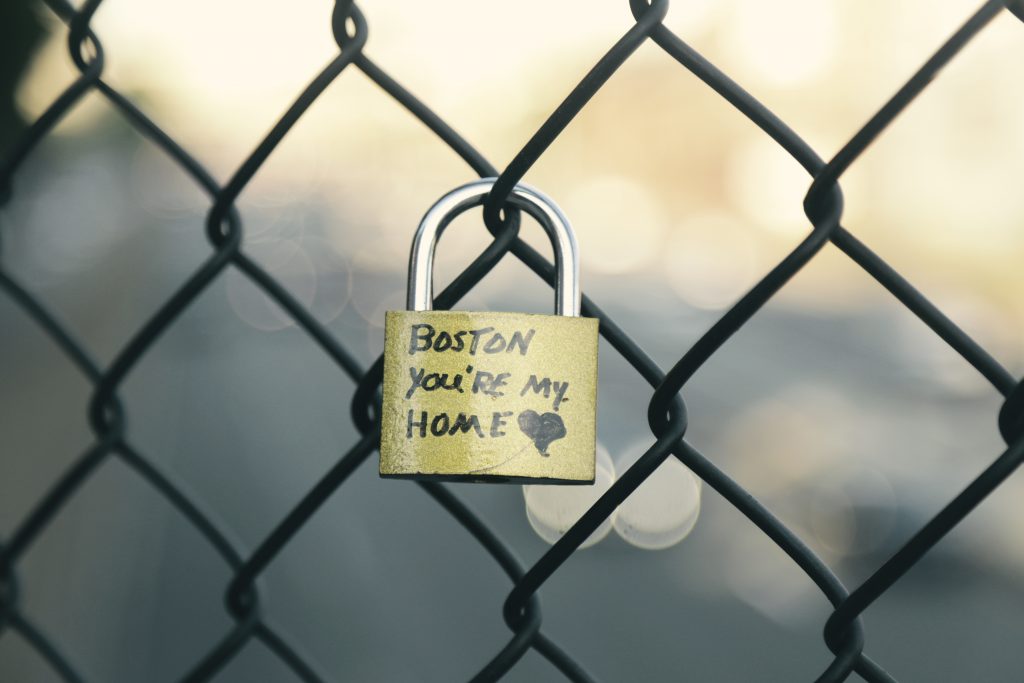
But before you scroll, a few things that no guide can teach you – once you are an expat be mentally ready for cultural shocks. Be flexible with your religious beliefs. There is no way your traditions will entirely match the customs of your new home, so be willing to adapt, dress like they do, eat what they eat and follow the rules they follow, at-least socially. The bottom line is to share your culture and accept theirs too. Be proactive, and read on…
TIPS FOR EXPAT-LIVING
- Read up on the new place as much as you can before you go. Focus on things like history, culture, and language to help you know more of what to expect.
- The worst part is usually all the paperwork needed to become a legal resident. Don’t let that get you down. Once it’s done it’s usually really easy to keep up.
- Buy a map. Get out. Use whatever form of transportation is popular to travel to different areas of your new home. Spend time getting acclimated to how to get around.
- If there’s a history museum, visit it. Learning about the history of your new home will help make it feel familiar to you.
- Find your spot. It’s nice to have a go-to place when you’re feeling down. This would preferably be a park or a coffee shop that’s easy to get to.
- Search for local expat groups on Facebook, InterNations, or through a regular Google search. Force yourself to socialize with the strangers. You never know where those friendships will lead.
- Fill up your calendar. Go to local events and festivals. Visit shops and grocery stores. Eat at restaurants and stroll through parks. (Tips 1-7 by Ann Belle of Kids Travel Books)
- Respect everyone. Smile often.
- Befriend a local. Be it your building manager or your local postman, knowing someone local to ask a question here and there is a good way to start.
- Remember that there is nothing wrong in being a tourist for the first couple of weeks in your new hometown. You might feel you have forever to do all that, but there is nothing better than knowing your surroundings first and then settling in.
- Get an international calling card.
- Get a driving license. Driving around in a new place like its yours – is one of the most significant ways of adapting as an expat and becoming self independent. If you are in a city of great public transport – become a living map of your local trains and busses, and feel confident about getting around anywhere and everywhere.
- Know your daily-life basics. Its good to know how to get around the city easily, but there are other basic things you need to know about your day to day life activities such as, how and where to post a letter or a package? Which is your closest take-out option? A complete list of emergency numbers for HELP?
- Get your medical insurance sorted and register with a primary care doctor / general physician. In case that is taking you time, till then prepare your own first-aid kit in the house, and get notes on the closest walk-in clinics you can have access to.
- Open a bank account, but keep some emergency cash at home. Always.
- Design a space that is truly yours. Decorate your house and make it cozy. Use platforms like Homify to look for ideas and inspiration to design each of your rooms and then go ahead to furniture/housewares stores to buy all that you need. The process of making your own space from concept to execution helps build a home away from home and gives you a comfort spot in a new town.
- Join a yoga/mediation class. Yoga or fitness classes are a great way of having a healthy schedule in the new place and also helps you meet the same people everyday providing you a sense of belonging with time. If yoga is not your thing, look for an activity schedule that appeals you.
- Look for local volunteering opportunities. Try searching on LinkedIn to start with. As expats you may or may not be allowed to legally work right away, so depending upon your situation find a volunteering opportunity to start with. It will help you get a sense of the work-lifestyle of the place and also build your resume and connections at the same time.
- Look for short courses in universities around you. If you are in a situation where you cannot work just yet, or you are a dependent, joining an academic course is a good way to kickstart your new life. Transferring to a student visa instead will give you some freedom to work on campus and pursue your education further which would also help you land up a job in the end.
- Get apps like Yelp and Foursquare to quickly search for places around you and get familiar with popular spots in your area. It sounds like a small tip, but it helps you boost your self confidence to a great level while trying to adjust in a new city.
- Try the local food, learn how to cook it, and visit the departmental stores often to look for new local / global recipes and ingredients. While you are in a new place – food can be a great ice breaker between you and the new culture.
- Get a local library membership.
- Subscribe to the local newspaper. If you are living in a new city, you need to know everything about it too.
- Get to know your neighbors. You never know when you will need help.
- Read up on state laws, expat insurances and your expat rights. The more you know, the better.
- Calculate your credit score and keep a check on your credit history from time to time. Your credit history determines a lot – specially when you are looking for a house or applying for a loan.
TIPS OF EXPAT-TRAVEL
- Use Googlemaps! Wherever you are you can zoom into an area and have it downloaded for offline viewing. It’s been a life saver during our travels and anywhere we’ve based ourselves – Tip by Stefan and Sebastien of Nomadic Boys blog.
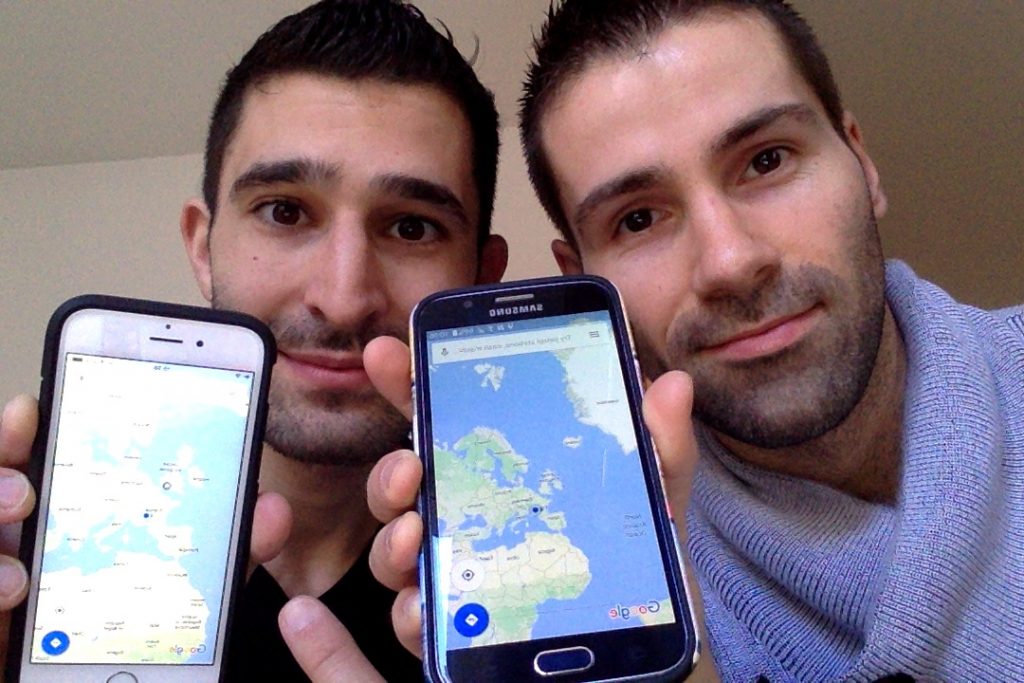
- Beware of a false sense of security. Depending on what countries you are traveling through, not everyone may be happy that you are there. Always remember that you are a visitor and there are social norms that may not be obvious. Your new local buddy may eagerly shake his head ‘yes’ to everything, including inappropriate (or illegal) behavior or actions. Use your common sense.
- Relying solely on the recommendations from a ‘cool backpacker’ you may have met is unforgivable in the age of the internet.
- When it comes to legal matters, the more remote you go the more invisible and unimportant you can become. Again, depending on where you are traveling. A sexual or physical assault may be considered a shock in your own country, but an insignificant disagreement in another country. In fact, some countries may take the side of their own countrymen rather than acknowledge that anything ‘bad’ ever happens in their country. If you do have anything happen it would be good to let your embassy know immediately. Also be sure to have your embassy contacts with you in case of emergency.
- Try to learn a few basic phrases or words when visiting new countries. Making the effort not only shows respect, but can be a real icebreaker. And in a pinch, a smile can go a long way.
- Consistently surrounding yourself with other expatriates (or travelers) can often buffer you from locals and true local experiences. For some it can be an easy trap to fall into, and depending on why they are overseas to begin with maybe that doesn’t matter. But for expats who want to embrace new cultures and experiences, having a mixed ‘social life’ will offer them a much richer overseas experience. (Tip 28 to 32 by Vanessa Workman of www.theislanddrum.com)
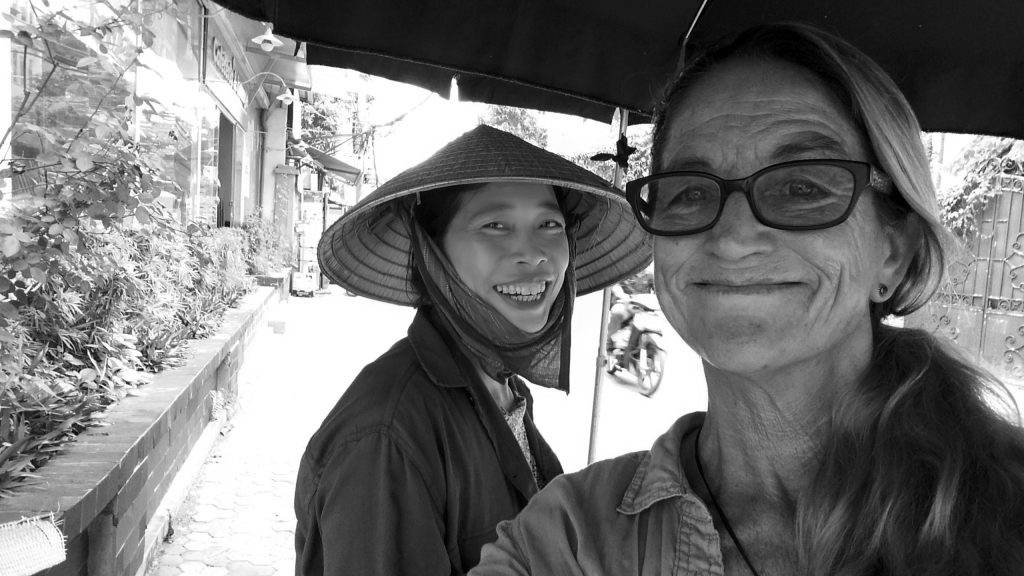
- Never call yourself expat. Become a local. Absorb from your new daily life. Immerse in local tradition and festivities and never think yourself as an expat.
- Technology is your best friend – your family and relatives are not so far, just Skype away.
- Go Multilingual. This is the best opportunity to learn the local language. It will be helpful in your survival more than anything else.
- Make a group. Whether it is being a part of expat community or local friends, it is your family when you are away from home. (Tip 33 to 36 by Himanshu Aggarwal of Delhi Nomad)
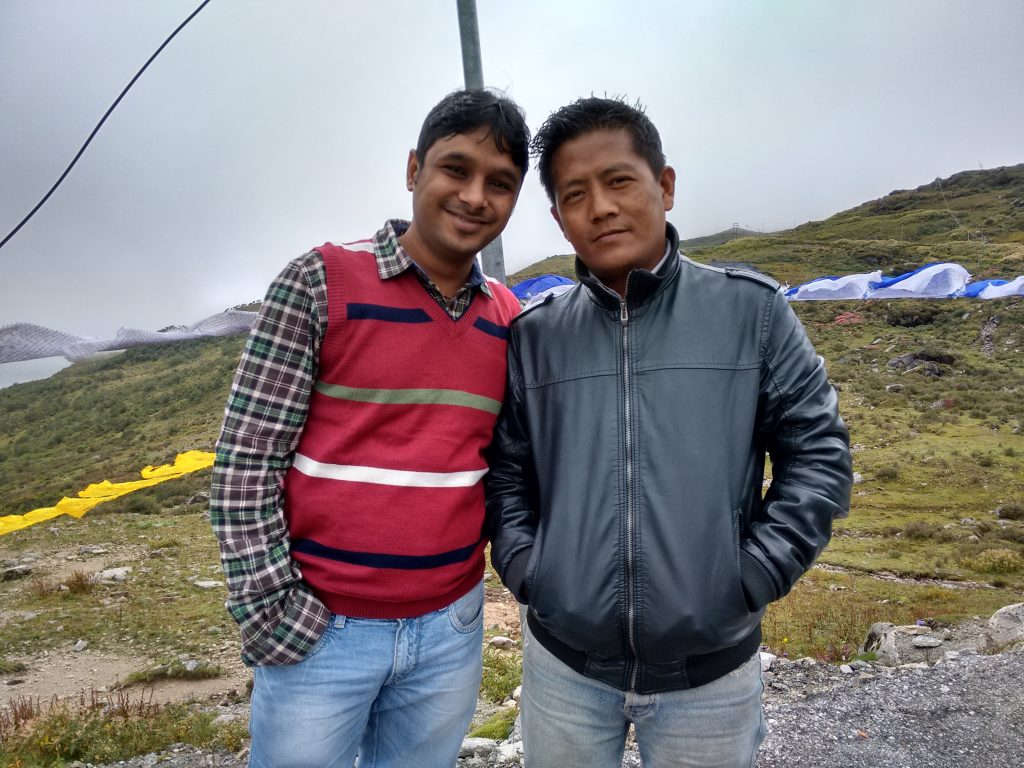
- Find out where the locals are eating – you’ll assimilate much better if you’re at the local spot! Plus you’ll save a fortune in the long run!
-
Head over to Meetup.com and see if there are any groups in your local area. It’s a great way to visit other travelers/Digital nomads! (Tips 37 to 38 by Stu & Eloise of http://aminearlythereyet.com)
-
When it comes to stuff, get stuff that has multiple purposes. Got one of those shag-carpet welcome or bath mats? Becomes a foot warmer with some clever folding and a bit of duct tape.
-
In non-English-speaking countries, speaking English only draws more attention to the fact that you’re not from around there. Keep your voice down.
-
Smartphones and SIM cards go together like peanut butter and jelly. Pick one up at the airport and use prepaid-data-sim-card.
wikia.com/ to find the details you need. -
Hotels: Ask to see the room first at any low-priced, non-chain hotel. Our checklist (and yes, we have seen hotel rooms missing one or more of these): flushable toilet, fan / air conditioning, blankets and sheets, remote controls for TV and air conditioning, toilet paper, and windows that closed.
-
Plastic bags: often worth their weight in gold, so stash a few per person. Double-bag dirty clothes and any toiletries, whether you have the Ziploc type or the grocery-bag type.
-
Safety: That old tip about the ‘decoy wallet’? Forget it. Assuming you even have it handy, it’ll be apparent to any but the dumbest thief there’s slim pickings inside. Even assuming they’ve made a quick getaway to cover their tracks, you won’t be that hard to find again. Know where you’re going, have a neutral look at your face, and look like you belong. (Tips 39 to 44 by Chris of oneweirdglobe.com)

Got more tips to add to our list? Please feel free to comment below and shoot us an email at editor@streettrotter.com

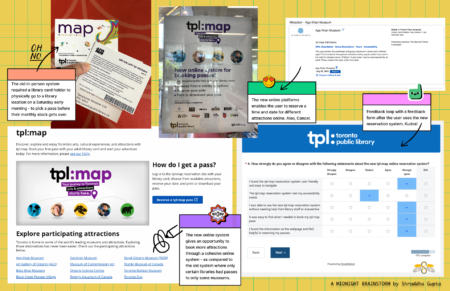

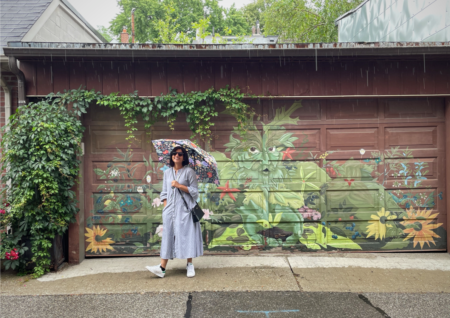




Getting to know your neighbours is so crucial. How does one build new friendships… thats the tough one, but also perhaps one of the most important ones…
I agree. The toughest for me and my husband was to how to make new friends, and I realized that going back to school, and your work place is the best way to start. You eventually end up meeting friends of friends and then finally find your group. Takes time but works.
Each of the tip goes a long way helping expats to make their life easier that too coming with your own experiences.
WOW! That’s such an exhaustive list and I was nodding my head all through. leaving your country behind is more difficult than it seems, I totally agree with you, both through experience and through whatever I have read/seen/absorbed. But these small things can come in handy when you’re done missing homeland and starting a new life!
Starting anew life is so difficult but the most difficult is making a new group and new friendships. Once that starts happening, its easier to settle in slowly. Small things like these matter the most.
There is nothing more for me to add here, really. I picked up a new piece of information, meet.com- that website which is the Bible of all events.
But, I am wondering what made you write this insightful post after you have spent 2 years in the country of your residence.
Meet.com is amazing!!! You should definitely try it. I wrote this post after two years only because I wanted this post to have an exhaustive list with lots of experience. It takes a lot of time to learn these little things when you move, and even two years are less to learn it all. It seemed to be the perfect time to write it now, as I finally feel settled and at home.
I am sure it will. All the best for the move! Keep calm and settle in! 😉
Great Read! I especially like the point about meetup.com. I met some really great friends there and i even started a group on there too!
nicely written, good content. the only suggestion might be to always make sure your health insurance needs are always covered? especially in US where we can simply be faced with $10k+ bills for a minor surgery.
i have just relocated back from China and been always using these guys https://chinaaccesshealth.com/
surprisingly they have 2 offices one in SF and one in Dallas so could still help me with my insurance back home too.
Stay Safe!